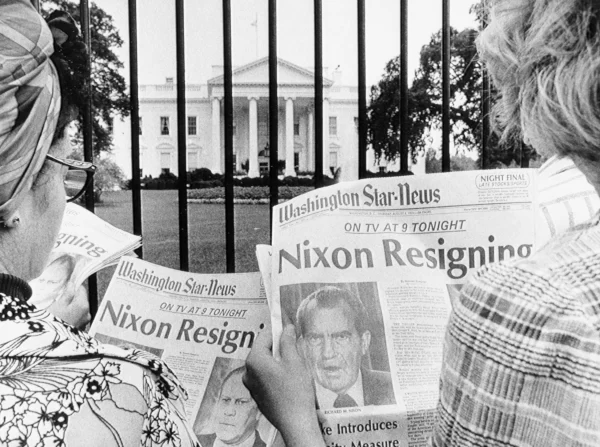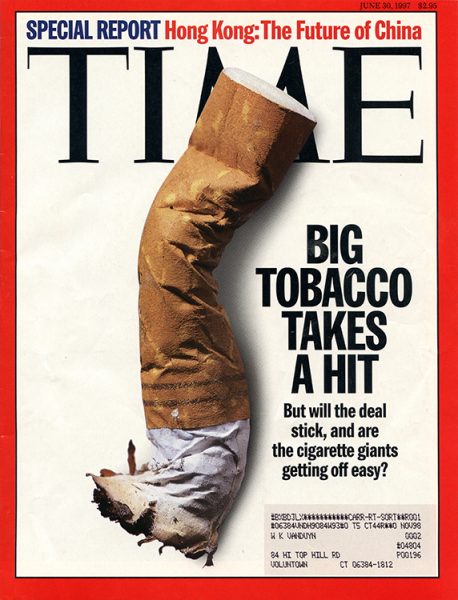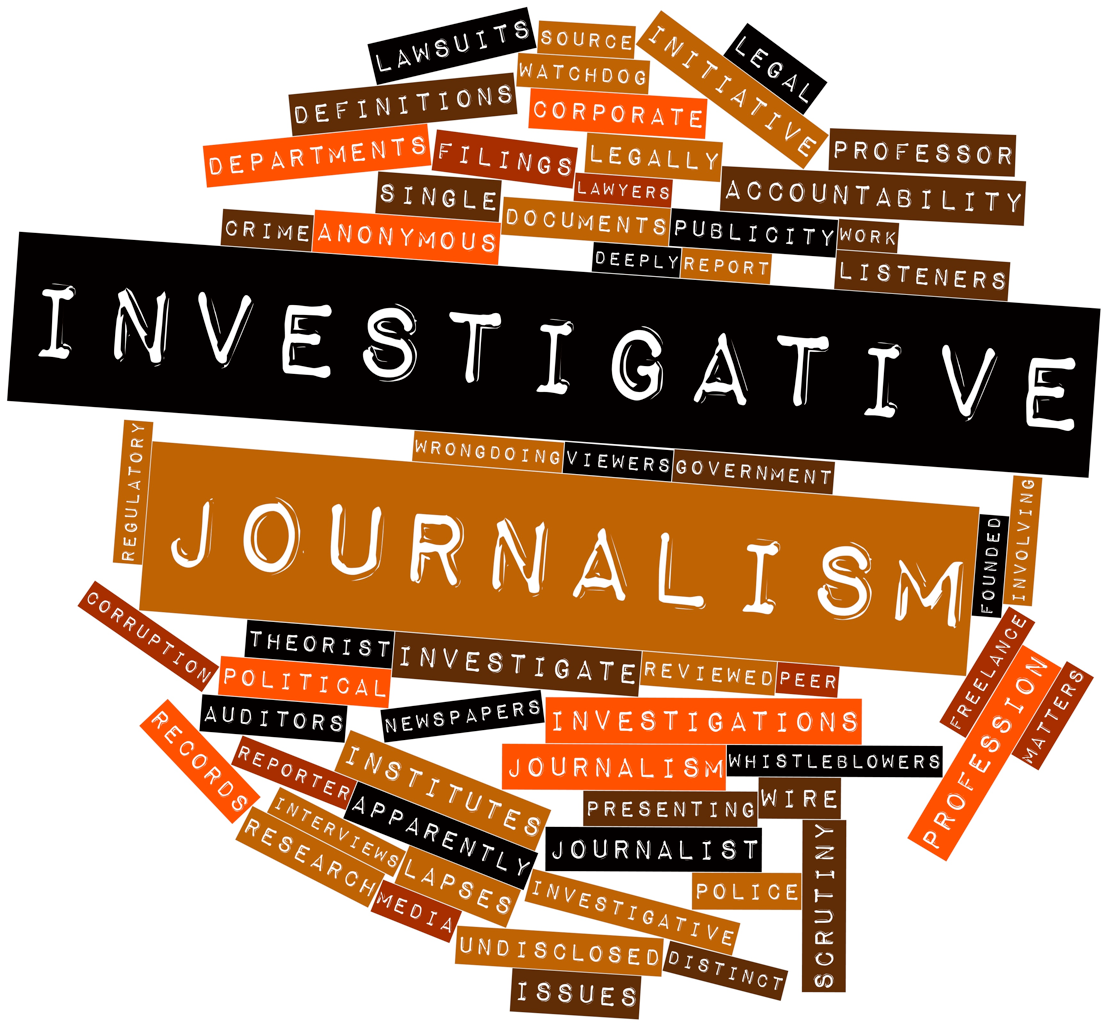Today is Part III of our four-part series of articles that will look at The Business of News and Integrity in Journalism. Today’s focus is Investigative Journalism and how some of the biggest scandals in modern history were broken open by the dedicated men and women who pursue this path.
If it were not for Investigative Journalism and Reporting, there is a lot that would be very different today, and not change for the better. Just think about some of the many truths uncovered by the insightful and dedicated people who pursue this line of journalism, that we might still not be aware of today:
- The Pentagon Papers
- Watergate and the Nixon Resignation
- The Takedown of Big Tobacco
- Spotlight Team Uncovers Widespread Sex Abuse Coverups by Boston Arch Diocese
These are just a few of the major landmark moments that have happened in the last fifty years due to Investigative Journalists working multiple leads, and sources, battling endless deadlines, and potential conflicts of interest within their own news network or parent company – not to mention the many very powerful people that have been taken down by such investigations over the years – up to and including the President of the United States. So what is Investigative Journalism and why is it so important, perhaps today more than ever?
Investigative Journalism is a specialized form of reporting news. It takes a great deal of patience, razor-sharp focus, attention to detail, and understanding that one false lead or bad source could not only cost you your job – but could forever put a stain on the organization you represent. So it goes without saying that only the best of the best end up in this field.
The reward is not only the personal recognition you receive, and the acclaim the organization receives as well – but the fulfillment of knowing that something you worked on for so long ended up making a real difference in people’s lives. So this week, we thought it would be good to take a quick look at four major stories broken by investigative teams and demonstrate the vast impact they made in both the short and long term of reporting on major news stories.
The Pentagon Papers
The Vietnam War was one of the most controversial and hotly debated pieces of foreign policy in modern-day US History. While many in the US believed that what the American people were being told by the Nixon Administration and previous administrations regarding all of the important information on the war, was false – the Nixon administration had a firm hold on the media and its reporting. As covered in previous editions of this series – there were very limited outlets for coverage of major news.
So what started as a former aide to a top US Official photocopying a top-secret study and report on the War in Vietnam and his desire to leak these documents, ended up becoming a major win for journalism and the right to a free press that operates free from constraints of ANY government, let alone it’s own. The US Supreme Court ruled after months of back and forth in the lower courts – that the US Government hadn’t met its burden of proof that the publication of these reports and how the American people had been lied to going back four administrations – was harmful to National Security. The New York Times and the Washington Post were both credited with breaking what, at the time, was considered to be one of the biggest stories in the brief history of Investigative Journalism. It was even more eye-opening for the American people who, in their desire to feel safe and protected, now knew that so much of what they had been told and even defended themselves to those who opposed the war, were outright lies and fabrications. This would come into play again after the Second Gulf War and the George W. Bush administration’s lies about WMDs (Weapons of Mass Destruction) in Iraq post 9/11.

Watergate and the Nixon Resignation
Could a newspaper help bring about the fall of a US President? Yes, and continues to be considered one of the greatest moments in the history of Journalism as a whole.
Carl Berstein and Bob Woodruff were two journalists for the Washington Post. If you want all of the details on just how many times their reporting on the Watergate break-in and cover-up, were almost thwarted – read or watch the movie version of All The President’s Men. But basically – The Washington Post at every single step of this investigation, and just off the heels of the legal challenges to their reporting on the Pentagon Papers, had to double and triple check every source and every inch of the reporting on this because of the implications to not just high ranking Nixon Administration officials – but the President himself.
The two men were being heavily scrutinized at every strange turn their investigation took. Add in the greatest protected source (and super cool codename of all time) “Deep Throat”, and you can see why the paper’s Editorial leadership was scared to death about the many implications of breaking wide open the story of the century. But as every source began to become a little freer with what they were willing to share, to go on the record, and as the links between break-in henchmen and Nixon’s inner circle became shorter and clearer – it was becoming more and more obvious that they might just be on to something huge.
Once the story fully broke, and other notable news sources began ramping up their coverage, The Watergate Scandal took on a life of its own. After the scandal grew with multiple firings of Nixon officials by the President, the leak of the Watergate Tapes (recordings made in secret by Nixon in which all of the details of the cover-up emerged) and coverage of the scandal becoming all the American people could focus on, Nixon finally resigned in August of 1974, becoming the first US President to do so.
While the scandal itself had so many layers and twists and turns – still to this day it was the reporting of Berstein and Woodruff that many consider to be the driving force to Watergate going from a whispered about scandal in Washington, to headline news around the world. It would forever change how the Office of the President was covered and how future administrations would be held accountable.

The Takedown of Big Tobacco
The number of adults who smoke in this country has decreased massively from our parents and grandparent’s generations to today. Our generation probably wouldn’t believe that cigarette manufacturers used to advertise things like “9 out of 10 doctors prefer Lucky Strike Brand” or brag about health benefits – yes, we said HEALTH benefits – of smoking. Throughout the 1980s and early 1990’s the dialogue started to shift however, as non-smoking programs in schools and educational programs began teaching the youth about the many health risks associated with even casual smoking, let alone heavy users of tobacco products. There were changes such as no longer allowing cigarette ads on television, shows no longer showing people smoking on screen, and even the first-ever Surgeon general warning to pregnant women, that smoking while pregnant can lead to major complications and birth defects. We know how insane it sounds now to think that anyone had to be told these things – but there was a good reason why it hadn’t happened yet: The Tobacco Lobbyists in Washington.
When whistle-blower Jeffrey Wigand decided he could no longer stand by knowing full and well that not only was the tobacco industry aware of how deadly its product was, but also about the additives being used to make the product even more addictive than ever before known. Enter Mike Wallace and the team at 60 Minutes (the oldest prime-time news magazine in US history).
Like previously mentioned milestones in Investigative Journalism, there is a great movie adaptation starring Russell Crowe and Al Pacino. The difference in this is the government wasn’t even close to being the main focus of the investigation. The lobbyists for Big Tobacco went to every possible length to keep this story under tight wraps, and to discredit Wigand as every kind of terrible person to make him seem untrustworthy. The efforts almost worked, as 60 Minutes backed off the story on multiple occasions due to pressure from their parent company and fear of lawsuits. Eventually, the story did air and aired in its full unredacted version. The result was so powerful that the once great lobby in Washington could no longer stand up to the pressure being put on Congress to act. After major lawsuits, changes in laws regarding how tobacco could be sold and marketed, and a decrease in overall use – the tobacco industry has taken hits that it has withstood – but with massively reduced annual profits.
Today states across the country have increased the legal age to purchase tobacco products to 21, the same as alcohol. While vaping has become very popular, without the fear of that larger-than-life lobby coming after you – the truth about the dangers of vaping is everywhere and schools, health care providers and public service ads are raging war against it now too. All of this – because a television news magazine on the air since the early 1970s decided to take on Goliath and went through every kind of intimidation, threat of libel, trouble with sources, and possible motivating factors – to get the truth to the American people.

Spotlight Team Uncovers Widespread Sex Abuse Coverups by Boston Arch Diocese
It doesn’t get much bigger than taking on the Catholic Church. For some, the institution is the very earthly presence of God here on earth, and its Cardinals, Bishops, Priests, and Christian Brothers are the closest thing to a direct connection with that all-powerful being.
This has it all too:
- High Scandal among one of the most powerful and influential institutions – CHECK
- Investigative Journalism at its finest, and not to mention by the oldest newspaper team in the county-CHECK
- Amazing movie adaptation – CHECK
- Widespread changes as a result – mostly CHECK
The Spotlight team was the oldest newspaper investigative team in the country. They wrote for the Boston Globe, not only one of the country’s oldest newspapers – but also serving a city that is as Irish Catholic as it is devoted to the Boston Celtics, Bruins & Sox. It’s ingrained into their culture, families, neighborhood, and the very fabric of the city. The Arch Bishop of the Diocese of Boston was almost bigger than God – almost. The men who ran the Arch Diocese at its highest levels sat on Boards of Directors, ran multiple charitable organizations, and had very powerful friends in very powerful places.
When the Spotlight team got people to start to talk, including some priests who had been “retired” by the Diocese for any number of public-facing reasons like age and health issues – the dominos started to fall. Members of the very team on Spotlight were lifelong Catholics who had close ties to the very powerful men within the Diocese who were now being investigated for their roles in hundreds of coverups of sexual abuse of thousands of children and vulnerable adults. There was so much back and forth over the potential fallout from this investigation going public, as the Church itself did everything in its power to keep a lid on it. But just like Pandora’s box – once that lid was lifted – everything spilled out. Decades of shifting of pedophile priests from parish to parish, school to school. Discrediting accusers and convincing their very own parents that there simply could not be anything to these terrible lies being told. The pattern was clear – continue to move them around until eventually, they had to be permanently relocated, or worse, never came close to being actually found out and simply continued the cycle of abuse.
This reached the very top of the Arch Diocese – Cardinal Bernard Law resigned, only to find sanctuary in Rome of all places. But this was only the tip of the iceberg. Dioceses around the world began to unravel as accusations flooded in and thousands of clergy were implicated along with the Church going all the way up to the Vatican were exposed for their attempts to not only cover it up but to turn the other cheek simply.
All of the groundbreaking investigations we discussed here brought about major policy changes, and public knowledge, and brought down a lot of very powerful people who had abused that power forever. We didn’t even get into the #MeToo movement, Arms for Hostages during the Reagan Administration, or the uncovering of lies regarding Weapons of Mass Destruction in the second Iraq War. But all have the same thing in common – a team of non-biased reporters dedicated to one thing – truth and serving the greater good of public interest.
Next week we will speak with our very own Mr. Fanin about the integrity of journalism and how the news is less trusted now than ever. This very fact has made uncovering the truths hidden from the public harder than ever.
We made several attempts to reach out to the WTOL Investigative Reporting Team, but there were no responses to our requests to interview anyone involved with their team and the important work they d


























